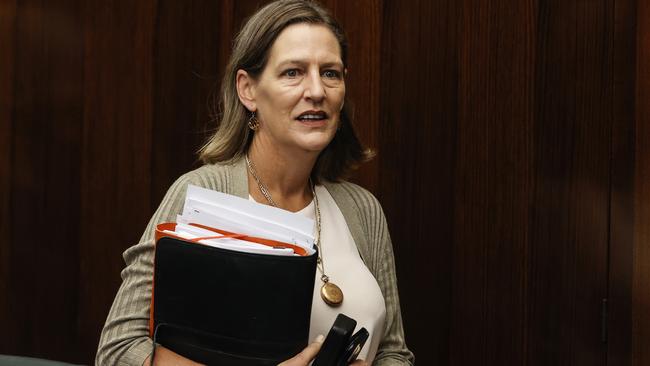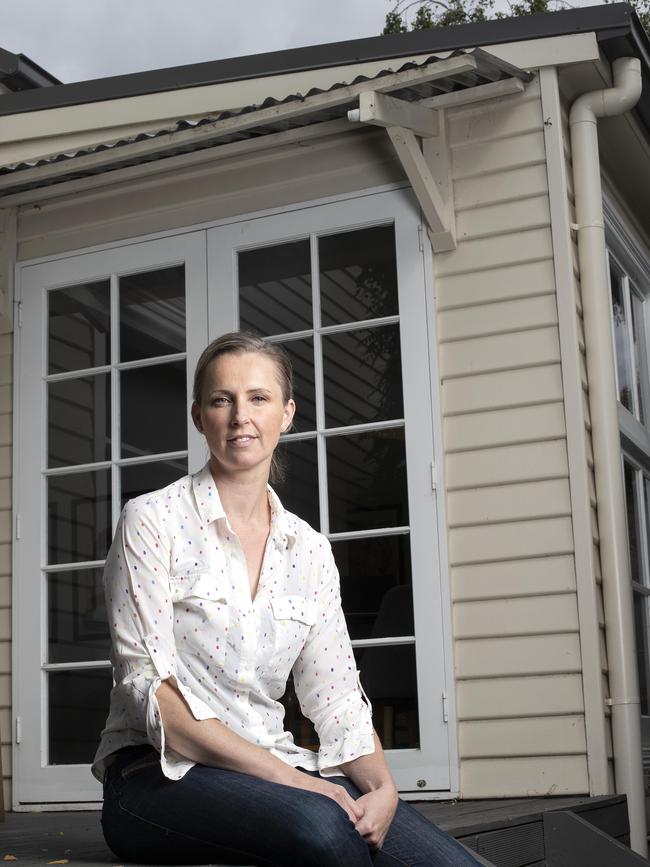TALKING POINT: Cassy O’Connor and Louise Elliot explain the pros and cons of rent control
The Greens sensationally announced and tabled rent control legislation last week – and it was hotly debated. Greens leader Cassy O’Connor and TRRPO’s Louise Elliot explain the finer points of why, or why not rent control is a good idea.
Opinion
Don't miss out on the headlines from Opinion. Followed categories will be added to My News.
THE FORS:
By Greens leader Cassy O’Connor
IF you’re a tenant living in a rental property in Hobart, chances are you’ve recently received a rent hike.
Our office has taken dozens of calls from tenants facing increases of $50 to $150 a week.
Some people we’ve spoken to have been in tears, all are worried about how they’re going to cope financially.

The national data tells us that Tasmania is already the most unaffordable state for renters in Australia and the Real Estate Institute of Australia confirms this.
Tenants here spend on average 29.5 per cent of their income on rent.
This figure is significantly above the national average, and only a sliver below the widely accepted measure for housing stress, which is 30 per cent of income.
A new Council of Homeless Persons report says it expects housing stress to increase by 24 per cent, and homelessness by 9 per cent nationally by June, largely as a result of the cruel looming cuts to JobSeeker and JobKeeper.
Given that housing stress has already become the norm in lutruwita/Tasmania, the situation for tenants here is particularly frightening.
This data is the backdrop to the huge rent increases we are now hearing about every day.
With so many Tasmanians desperate to a find or secure a home, those landlords who are only worried about maximising their profit know they can get away with hiking prices by 40, 50, or 60 per cent.
Tenants become trapped in an impossible situation.
Do they try to stay in a rental they simply can’t afford, or do they take their chances in finding a new place to live in an impossibly competitive rental market?
Despite this, the Premier denies there’s any need for change and says he doesn’t believe rents are too high.
No matter the evidence, and no matter how many distressing stories, he simply won’t budge.
The level of social and economic distress caused by soaring rents demands a policy response. That’s why we’ve drafted an amendment Bill to rein in rents, like they have in the Australian Capital Territory.
In short, our Bill is designed to fix an existing part of the Residential Tenancy Act, which is supposed to protect tenants from “unreasonable” rent increases.
While the current laws do refer to “unreasonable increases”, in practice they provide no protection for tenants.
That’s because their only limitation on rent hikes is if the Residential Tenancy Commissioner finds an increase to be unreasonably above the market rate for a similar property.
The burden of proof for a tenant is insurmountable, due to the absence of data on comparable rentals.
Our Bill proposes a new set of criteria for defining what is “unreasonable”.
Greens Table Rent Control Legislation - https://t.co/iQSRdfHhhx@CassyOConnorMP#politas
— Tasmanian Greens (@TasmanianGreens) March 18, 2021
It mirrors laws already established in the Australian Capital Territory by setting a rent control
threshold of CPI plus 10 per cent.
Tenants would still follow the established process of challenging the rate with the Residential Tenancy Commissioner.
If the increase they are challenging is above the threshold, landlords must prove why the increase is reasonable.
The Bill explicitly provides for a range of factors — including the owner’s outgoing costs, services they provide and goods they have supplied — for the Commissioner to consider in assessing this claim.
This Bill is not designed to remedy every issue associated with the housing crisis.
Nor is it designed to impact property owners who do the right thing by their tenants.
It’s about making our existing laws work as they should, so tenants are not subject to massive, unreasonable rent hikes, and forced to go without food, or onto the streets in the middle of a housing crisis.
With the Morrison government set to slash its coronavirus support payments next week, the need for action could not be more urgent.
Our colleagues in the Tasmanian Parliament now have a simple choice — to do nothing, and allow massive rent hikes to continue, or to take this opportunity to better protect tenants through a tested, quite conservative approach to rein in rents.
We have offered all MPs briefings on our Bill, and to discuss any concerns they have with it ahead of the debate, so these can be resolved. Regrettably, the Premier has already ruled out supporting it.
It can still pass, however, with the support of Labor, independent MP Madeleine Ogilvie, and Speaker Sue Hickey.
We hope that when we bring on this Bill tomorrow, these MPs will vote to provide Tasmanian tenants some relief.
We were all elected to do the right thing by Tasmanians and right now, our constituents in rental homes are crying out for help.
Clark MP Cassy O’Connor is leader of the Tasmanian Greens.
THE AGAINST:
By Louise Elliot, president of the Tasmanian Residential Rental Property Owners Association
RENTS are high and many are struggling to afford their rent. There is no denying that it is a problem that needs to be fixed, and urgently.
Although the way to address the root cause of the problem is widely known to be through increasing supply, the Greens want to cap rents, thinking it will eliminate the rent increase headlines.

We disagree and go so far as to say it will worsen the situation for tenants who are already struggling.
The Greens have introduced a Bill that seeks to cap rent increases to CPI plus 10 per cent of CPI.
In real terms, we are mostly talking owners being allowed to increase the rent on their property by a single digit dollar figure once a year, without the matter going to the Residential Tenancy Commissioner and the onus being on the owner to demonstrate that the increase is reasonable.
There are many faults and risks with this proposed quick fix but let us start at the start.
Owners are still reeling from the faulty moratorium the Tasmanian government implemented that lasted for 10 long months and made it legal for every tenant to not pay rent without consequence.
This unfathomable, extreme and absurdly unconditional legislation has done significant damage to any trust landlords have in the residential tenancy legislation and their faith they will be treated fairly by government.
Also recently published is the Premier’s Economic and Social Recovery Advisory Council report which highlights the importance of being strategic, and not inadvertently adding to housing shortage issues and driving up rents.
In addition to validating flaws in Tasmania’s rental mortarium logic and design that our association has been highlighting for months, it says the moratorium passes the costs for social policy to landlords and sends “a message to potential investors about ‘sovereign risk’ in residential investment in Tasmania, which in turn could have a meaningful impact on the future willingness of investors to grow Tasmania’s rental housing stock.”
And yet, here we are again.
Another reactive, desperate grab for a quick fix, another shortsighted proposal, another deterrent to rental ownership that has already begun to backfire.
If rent caps were to be legislated, we would see many owners sell up at premium prices to owner-occupiers (including those fresh off the Spirit of Tasmania), too frustrated at the removal of yet another of their fair rights.
We would see the price for rental properties being set at the highest rate the market would tolerate from the outset, knowing any scope for increases during a tenancy are severely restricted.
Many tenants would likely no longer enjoy the financial benefits of stable rent in exchange for being a great tenant.
Instead, rents increasing annually by the maximum allowable amount would become the norm as owners would be too wary of letting the gap widen between what the tenant is paying and the true market rate, knowing catch-up would be impossible.
Even now, just the threat of rent control being on the table is motivating owners to increase the rent to market rate in fear that that right will soon be removed.
The sad reality is that those pushing for rent caps are already making it worse for those they are trying to protect.
Rent caps are not the answer to this systemic problem that has been snowballing for many years due to negligence and neglect.
We must direct our attention and energy to true fixes — new homes coming to the market and social housing stock, boosting supply, creating healthy competition and mending the holes in the safety net.
Louise Elliot is president of the Tasmanian Residential Rental Property Owners Association.


